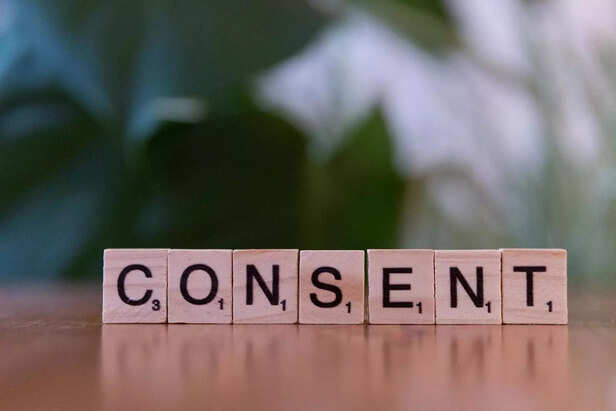The Psychology of Catcalling: Indian Men Think It’s Cool, Women Think It’s Cringe
Riya Kumari | Mar 01, 2025, 23:28 IST
( Image credit : Times Life Bureau )
Let’s talk about catcalling. Or, as men seem to interpret it, a Shakespearean sonnet performed on the sidewalk. Because surely, nothing screams "irresistible charm" like a guy in flip-flops yelling "Hey, sexy!" while adjusting his sweatpants. Here’s the thing: men think catcalling is a grand romantic gesture—like running through an airport to stop the love of their life (only with significantly less cardio). Women, on the other hand? We think it’s the verbal equivalent of an unskippable ad—disruptive, annoying, and aggressively unnecessary.
A woman walks down the street. She’s not looking for conversation, not performing for an audience—just existing. Then, it happens. A whistle. A comment. A lingering stare that follows her like a shadow she didn’t ask for. To the man who delivered it, this was a moment of bravado. Maybe he thinks it was a compliment. Maybe he thinks it was harmless. But what he doesn’t realize is that, for the woman, this isn’t new. It’s not special. It’s not even shocking anymore. It’s just exhausting. Catcalling is one of those things society likes to pretend is trivial. But it’s not. Because what looks like a minor social interaction on the surface is actually a power play. And when you really break it down, it says something unsettling about the world we live in.

Men don’t catcall because they believe it works. They don’t actually think a woman will stop in her tracks, charmed by a stranger’s unsolicited commentary. So if it’s not about connection, what is it about? Control. At its core, catcalling is not a gesture of admiration—it’s a reminder of dominance. It tells a woman, I see you, I have the right to comment on you, and there’s nothing you can do about it. And that’s the part that makes women so deeply uncomfortable. It’s not about the words themselves; it’s about the underlying message: You are being watched. You are being judged. Your presence in public is not neutral—it is up for discussion.
It’s a strange kind of arrogance, really. The assumption that a woman’s body, her time, her attention are all fair game. That a man can insert himself into her day, disrupt her space, and she should be flattered. That she should respond, smile, acknowledge him—because his voice matters more than her comfort.

Men often ask, Why do women get so upset over a simple comment? But it’s never just a comment. It’s part of a much larger pattern. A woman doesn’t just hear one catcall. She hears them her whole life. She learns to scan a room for exits. To check over her shoulder at night. To walk faster past a group of men, keys in her hand like a weapon. She internalizes the idea that her body is public property, that even silence can be dangerous, that ignoring the wrong man can lead to something worse than words.
And yet, when she reacts—when she is annoyed, dismissive, or afraid—she is told she is overreacting. That it was just a joke. That men can’t even say anything anymore. That she should take it as a compliment.

Imagine, for a second, if the roles were reversed. If women stood in groups and hollered at men walking by. If men had to make mental calculations about what route to take home. If they had to worry that rejecting someone’s advance might turn dangerous.
Most men wouldn’t tolerate it. They would call it harassment. They would say it’s disrespectful. And yet, when women speak up, their concerns are waved off as exaggeration. But discomfort is the best indicator of truth. If men find the idea of being catcalled unsettling, that should be enough to understand why women feel the same way.

The fix is remarkably easy: stop doing it. Women don’t owe you their attention. Not when they’re walking down the street. Not when they’re going about their day. Not ever. And if your idea of a compliment involves making someone uncomfortable, it was never a compliment to begin with.
The next time you feel the urge to catcall, ask yourself: If I truly respected this person, would I still say this? Because at the end of the day, catcalling isn’t about words. It’s about entitlement. And if respect doesn’t come naturally, maybe that’s the real issue to examine.
1. Why Do Men Do It?

Angry women
( Image credit : Pexels )
Men don’t catcall because they believe it works. They don’t actually think a woman will stop in her tracks, charmed by a stranger’s unsolicited commentary. So if it’s not about connection, what is it about? Control. At its core, catcalling is not a gesture of admiration—it’s a reminder of dominance. It tells a woman, I see you, I have the right to comment on you, and there’s nothing you can do about it. And that’s the part that makes women so deeply uncomfortable. It’s not about the words themselves; it’s about the underlying message: You are being watched. You are being judged. Your presence in public is not neutral—it is up for discussion.
It’s a strange kind of arrogance, really. The assumption that a woman’s body, her time, her attention are all fair game. That a man can insert himself into her day, disrupt her space, and she should be flattered. That she should respond, smile, acknowledge him—because his voice matters more than her comfort.
2. The Weight Women Carry

Man
( Image credit : Pexels )
Men often ask, Why do women get so upset over a simple comment? But it’s never just a comment. It’s part of a much larger pattern. A woman doesn’t just hear one catcall. She hears them her whole life. She learns to scan a room for exits. To check over her shoulder at night. To walk faster past a group of men, keys in her hand like a weapon. She internalizes the idea that her body is public property, that even silence can be dangerous, that ignoring the wrong man can lead to something worse than words.
And yet, when she reacts—when she is annoyed, dismissive, or afraid—she is told she is overreacting. That it was just a joke. That men can’t even say anything anymore. That she should take it as a compliment.
3. Would Men Tolerate This?

Angry man
( Image credit : Pexels )
Imagine, for a second, if the roles were reversed. If women stood in groups and hollered at men walking by. If men had to make mental calculations about what route to take home. If they had to worry that rejecting someone’s advance might turn dangerous.
Most men wouldn’t tolerate it. They would call it harassment. They would say it’s disrespectful. And yet, when women speak up, their concerns are waved off as exaggeration. But discomfort is the best indicator of truth. If men find the idea of being catcalled unsettling, that should be enough to understand why women feel the same way.
4. A Simple Solution: Just Stop

Consent
( Image credit : Pexels )
The fix is remarkably easy: stop doing it. Women don’t owe you their attention. Not when they’re walking down the street. Not when they’re going about their day. Not ever. And if your idea of a compliment involves making someone uncomfortable, it was never a compliment to begin with.
The next time you feel the urge to catcall, ask yourself: If I truly respected this person, would I still say this? Because at the end of the day, catcalling isn’t about words. It’s about entitlement. And if respect doesn’t come naturally, maybe that’s the real issue to examine.
